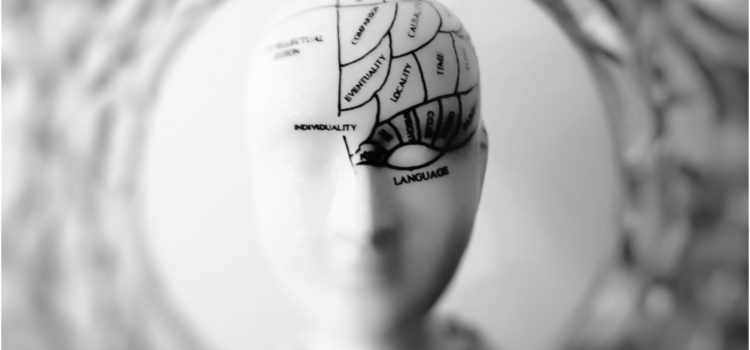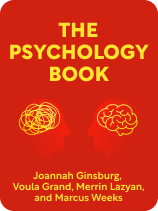

This article is an excerpt from the Shortform book guide to "The Psychology Book" by Catherine Collin, Nigel Benson, et al.. Shortform has the world's best summaries and analyses of books you should be reading.
Like this article? Sign up for a free trial here.
What are the origins of psychology? Where did early ideas about consciousness come from?
Psychology is the study of human thought and behavior, as well as the mental processes that underpin them. In its infant form, psychology dealt with the concept of human consciousness before experimentation and behavioral observation.
Below we’ll explore that transition by discussing the history of basic psychology.
Early Ideas About Consciousness
According to The Psychology Book, the origins of psychology begin in ancient Greece when philosophers began pondering what the mind—or the soul—was and consisted of. Plato proposed the idea that the mind and the body are separate, rather than a single entity as was previously thought. Then, in the 1600s, French philosopher René Descartes expanded on Plato’s ideas about the mind being separate from the body to theorize about how the mind influences the body: He suggested that the mind is immaterial (doesn’t exist in space) and resides in the pineal gland of the brain, where it consciously operates the rest of the body like a machine. Descartes defined consciousness as the ability to think about oneself and about one’s thoughts.
| The Mind-Body Problem The question of whether the mind and body are separate is known as the mind-body problem, and it continues to be a topic of debate in science and philosophy. Plato and Descartes’ belief in the separation of the mind and body is known as mind-body dualism. According to this theory, the body is physical and exists in spatial reality, but the mind doesn’t: You can measure the length of your arm, for instance, but you can’t measure the length of your mind. If the mind can’t be defined according to physical or spatial measures, then, the theory goes, the mind must be defined by consciousness. This idea contrasts with theories that the mind and body are the same and are therefore both defined by the same physical measures. In these theories, mental processes are believed to be the result of biological processes of the brain. One of the major views that contrasted with Descartes’s throughout history was the orthodox Christian view that the mind and body were both spiritual and thus not distinct from each other. As a result, people believed that physical ailments were the result of a person or group’s misdeeds and that for a soul to go to heaven, the body couldn’t be dissected for medical or scientific purposes. Some psychologists say that by disentangling the soul from the body, Descartes helped destigmatize the practice of dissection and greatly accelerated the advancement of medical science. Other views that contrast with mind-body dualism include materialism, which is the belief that everything that exists is material (made of physical matter) and that thought and consciousness are merely functions of the physical brain. This view is commonly held by behaviorists and biologists, some of whom believe so strongly in a strictly physical reality that they believe the mind doesn’t actually exist at all. |
The authors explain that Descartes and earlier philosophers believed that only humans had consciousness—which would mean observing an animal’s behavior wouldn’t provide any insight into human psychology—but 19th-century German psychologist Wilhelm Wundt claimed that all living things have a consciousness, even single-celled organisms. This claim was highly influential, and most psychologists today believe many animals have some level of consciousness.
(Shortform note: The question of whether animals have consciousness is a complex one, largely because of the nebulous and disputed definition of consciousness itself, as well as the idea that there may be degrees of consciousness. One measure that’s often cited as evidence of higher consciousness is an animal’s ability for self-recognition, or its ability to recognize itself in a mirror. Based on a mirror test developed in the 1970s, only a few animals seem able to recognize themselves. Those include bottlenose dolphins, orangutans, Asian elephants, pigeons, and ants.)
The Origins of Experimental Psychology
According to the authors, Wundt’s ideas led to the study of thoughts and perception, which were only internally observable but can be reported and measured by subjects of an experiment. He also designed his experiments so they could be replicated, which would allow scientists to gather and compare much more data. These standards formed the basis of experimental psychology.
(Shortform note: Wundt’s ideas were based partly on the work of Gustav Fechner, who developed the theory that we can quantify the mind’s response to environmental stimuli. This meant that these responses could be tested in experiments, which enabled one of the foundational standards of scientific study—falsifiability (the ability to be proven wrong)—to be applied to psychology. Wundt’s emphasis on replicability reinforced this standard, and his focus on gathering evidence through behavior and experiences established empiricism (the idea that only experience can confirm beliefs) as another of the field’s essential standards.)
While previous thinkers attempted to define consciousness as a single identifiable “thing” or state, 19th-century American psychologist William James suggested that consciousness is instead a process, a constantly changing stream of thoughts that allows us to adapt to our circumstances by pondering our past, present, and future. He coined the term “stream of consciousness” to explain his theory.
(Shortform note: “Stream of consciousness” has become a literary style used by writers such as Virginia Woolf, James Joyce, and William Faulkner. Stream of consciousness writing allows writers to create narratives that more closely resemble the natural human thought process in order to give readers a more personal and private glimpse into the characters’ experiences.)
James further suggested that our worldviews are rooted in beliefs that we find useful (as opposed to being rooted in fact). For instance, it might be useful to someone who loves sweets to think that sugar is good for them, so they’ll adopt that belief. We constantly test these beliefs against each other and against what we learn, changing them or adjusting them to fit what we experience. If the sweet-lover reads an article about the harmful effects of sugar or develops health problems, they might be forced to alter their belief about sugar, for instance. This also describes the process of altering a hypothesis in scientific research.
The authors say that James’s ideas shifted the central question of psychology from whether or not the mind and body are separate—which was unprovable—to the study of mental processes, which could be measured and tested through things like behavioral observation and memory tests. This led to the embrace of experimental psychology in America and caused some to call him “the father of psychology.”
By the late 1800s, there were two different major approaches to psychology: behaviorism, which was more popular in America, and psychoanalysis, which was more popular in Europe.

———End of Preview———
Like what you just read? Read the rest of the world's best book summary and analysis of Catherine Collin, Nigel Benson, et al.'s "The Psychology Book" at Shortform.
Here's what you'll find in our full The Psychology Book summary:
- Psychology 101 without the classrooms and dry lectures
- A look at the various fields of psychology and how they've changed
- Context, criticisms, and limitations of certain theories






